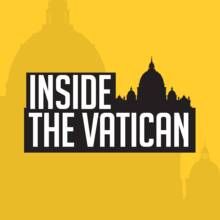Last week, Pope Francis signed two big changes to Vatican law: First, he implemented a sweeping anti-corruption decree that limits the gifts Vatican employees can receive to $50; then, he updated a previous legal reform to remove bishops’ and cardinals’ special rights in Vatican courts.
For most of the church’s history, bishops and cardinals could only be judged by the pope. Pope Francis changed that in 2019 as part of a slate of legal reforms aimed at combatting the sexual abuse crisis. In order to increase accountability and the number of cases that could be heard, the pope created a special court called the “court of cassation” to hear bishops’ and cardinals’ trials. With last week’s change, though, bishops and cardinals can now have their cases heard in the regular, lay-led Vatican tribunal.
Why make the change now? In this week’s episode of Inside the Vatican, host Colleen Dulle and Vatican correspondent Gerard O’Connell take a look at what effect the change could have on the ongoing investigation—and possible trial—of the Vatican’s London finance scandal, in which bishops and cardinals may be among those tried.
Colleen and Gerry also unpack the Vatican’s new anti-corruption law.
Links from the show:
- Pope Francis issued a sweeping anti-corruption decree. How will it affect Vatican operations?
- Cardinals and bishops to lose special legal privileges under new papal decree
- Italian bishop-elect shot in his home in South Sudan
- US Catholic bishops to vote on pressuring Joe Biden to stop taking Communion over abortion views
- Bishop McElroy: The Eucharist is being weaponized for political ends. This must not happen.
- Pope Francis calls for monthlong global prayer marathon for end of pandemic
- Pope Francis asks for prayers for peace in Myanmar









